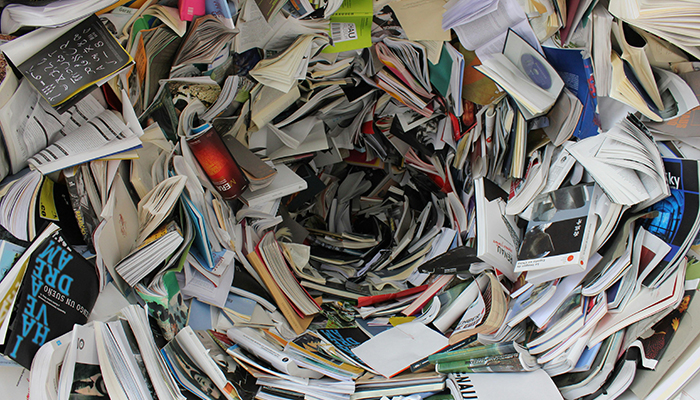You Don’t Have to Do This Alone: There’s Compassionate Help for Hoarding
You Don’t Have to Do This Alone: There’s Compassionate Help for Hoarding
By Tara Rullo, LCSW
If you’re struggling with hoarding, I want you to know something really important: you don’t have to do this alone. I know it can feel like you’re stuck in a never-ending cycle of clutter and guilt, and that maybe no one would understand what you’re going through. But the truth is, compassionate, judgment-free help is out there, and you deserve support—without feeling ashamed.
What Is Hoarding Disorder?
Hoarding disorder is more than just having a messy home or holding onto too many things. It’s a recognized mental health condition characterized by persistent difficulty in discarding or parting with possessions, regardless of their actual value. This behavior leads to excessive clutter that disrupts your living spaces and daily life. People with hoarding disorder often experience significant distress at the thought of getting rid of items, feeling overwhelmed by anxiety, guilt, or even fear. Hoarding can stem from various underlying issues, such as anxiety, depression, trauma, or strong emotional attachments to objects. Understanding that hoarding is a complex psychological issue is the first step toward finding effective and compassionate treatment.
Hoarding Is More Than Just “Too Much Stuff”
Let’s be clear—hoarding disorder isn’t just about having a messy house or being a “packrat.” It’s something deeper. If you’ve been holding onto things because the idea of throwing them away feels terrifying, or if you feel overwhelmed by the thought of parting with anything, that’s more than clutter. That’s a sign that something emotional is going on beneath the surface.
Hoarding is often tied to anxiety, trauma, or even a strong emotional attachment to objects. Maybe it feels like letting go of stuff means letting go of memories, or maybe it just feels too stressful to make decisions about what stays and what goes. Whatever the reason, it’s not your fault, and you’re not alone in feeling this way.
Compassionate Help Is Available
Here’s the good news: there are therapists and professionals who understand exactly what you’re going through. They get that hoarding disorder isn’t just about stuff—it’s about what the stuff represents and how hard it can be to let go.
Therapy can be a safe space where you won’t be judged. Cognitive-behavioral therapy (CBT) is one approach that helps people with hoarding by gently working through the thoughts and feelings that make it hard to discard things. It’s not about forcing you to get rid of everything all at once; it’s about finding a way to make slow, manageable changes that feel okay to you. Other methods like mindfulness or compassion-focused therapy can also help you deal with any anxiety or guilt that comes up during the process.
Here’s what compassionate treatment might include:
• Cognitive-behavioral therapy (CBT): Identifying the thoughts and emotions that drive hoarding behavior and learning to challenge and change them.
• Mindfulness practices: Helping you stay present and manage anxiety or distress as you work on decluttering.
• Gradual decluttering plans: Working with a therapist or organizer to clear specific areas at a pace that feels right for you.
• Support groups or family therapy: Reducing isolation by connecting with others who understand what you’re going through or involving loved ones who can help support your healing.
Breaking Free from Isolation
One of the hardest parts of hoarding disorder is the isolation it can create. Maybe you’ve stopped inviting people over, or maybe you don’t talk about your struggles with anyone because you’re afraid they won’t understand. But the longer that isolation goes on, the harder it can feel to reach out.
The truth is, reaching out for help can make a world of difference. Whether it’s talking with a therapist, joining a support group, or involving a trusted family member in your healing process, connecting with others can make you feel less alone. And knowing that there are people who want to help—not judge—can be a huge relief.
You Don’t Have to Do This Alone
If you’re struggling with hoarding disorder, it’s important to know that recovery is possible, and you don’t have to carry this burden by yourself. Change doesn’t happen overnight, and it’s not about clearing everything out in a week. With the right support, you can start to feel more in control and gradually create a living space that feels manageable and comfortable.
Don’t be afraid to ask for help. Whether that’s talking to a therapist who specializes in hoarding, joining a support group, or even just letting someone close to you know what’s going on—it’s a step toward relief. The process is about taking things one day at a time, with people who care about your well-being.
You don’t have to keep suffering in silence. You’re not alone, and there is help out there waiting for you.



